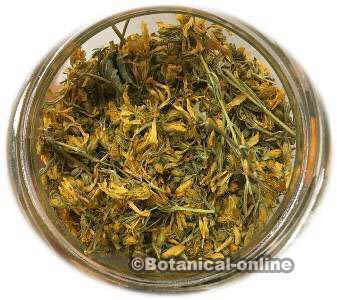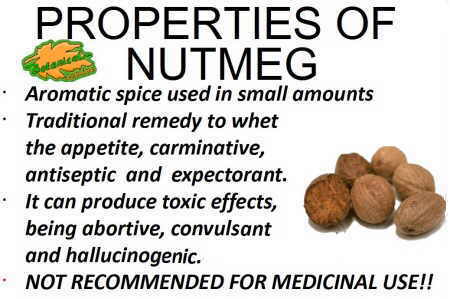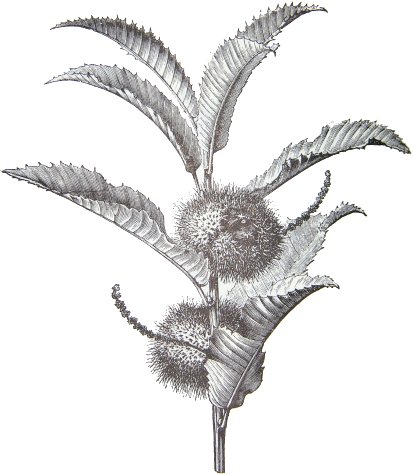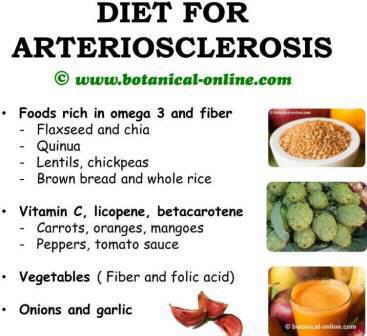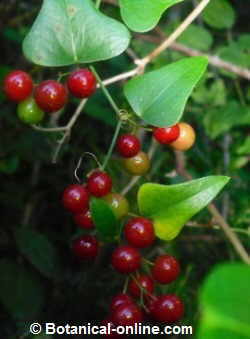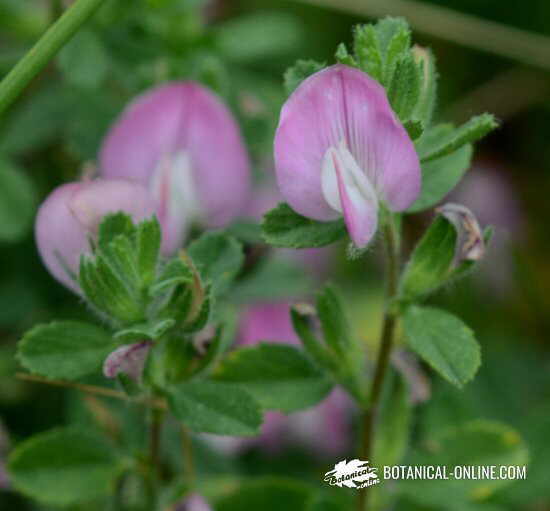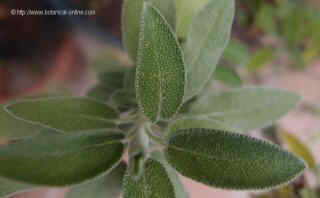Contents
- 1 What is moringa oil? (Moringa oleifera)
- 1.1 CHARACTERISTICS OF MORINGA OIL
- 1.2 What is moringa oil?
- 1.3 What kind of fat does moringa oil have?
- 1.4 What color is moringa oil? What flavor does it have?
- 1.5 How is moringa oil extracted?
- 1.6 Can moringa oil be used for frying?
- 1.7 FOOD PROPERTIES OF MORINGA OIL
- 1.8 Moringa oil is rich in monounsaturated fatty acids
- 1.9 Moringa oil contains behenic acid
- 1.10 Properties of behenic acid in moringa oil
- 1.11 Is moringa oil better than olive oil?
- 1.12 Quality of oils
- 1.13 Other uses of moringa oil
- 1.14 MORINGA OIL COMPOSITION TABLE
What is moringa oil? (Moringa oleifera)
CHARACTERISTICS OF MORINGA OIL
What is moringa oil?
Moringa oil is an edible vegetable oil that is extracted from the seeds of the Moringa tree (Moringa oleifera Lam.).
Oil is the first component of moringa seeds, accounting for about 40% of its gross weight.
Moringa seeds are very characteristic because of their wings and their dark brown color.
What kind of fat does moringa oil have?
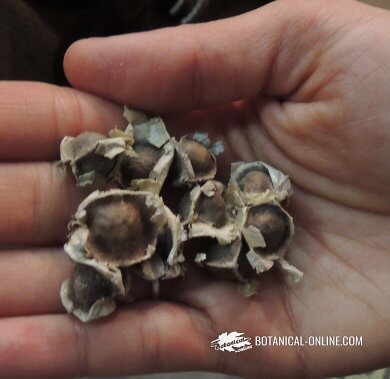
Moringa seeds, from which the moringa oil is extracted
Within the composition of moringa oil, most of the fats it contains are monounsaturated in nature, that is, it is an oil rich in oleic acid (omega 9).
Oleic acid is the same type of fat that also contains in abundance the healthy olive oil. In the case of moringa oil, it has about 70% oleic acid, while in olive oil, this percentage amounts to 80%.
Taking into account its composition, moringa oil can be considered as a good substitute for olive oil, in the countries where moringa originates and it is cultivated.
What color is moringa oil? What flavor does it have?
It is a light yellow oil with a nutty taste. It is kept in a liquid state at room temperature.
Moringa oil is rich in omega-9 monounsaturated fatty acids and also contains antioxidant vitamin E. It could be a good substitute for olive oil.
How is moringa oil extracted?
About 69% of the total oil of moringa seeds is extracted by cold pressure. At home or family level, it is usually extracted with very hot water. The seed is introduced in water and the oil that comes off is placed on the surface of the water, from where it is collected by decantation.
The good odor and good taste of this oil allows it to be used in food without being subjected to any type of refining or deodorization, unlike other edible vegetable oils. So, for example, unrefined soybean oil has a dark red color and a leguminous taste that needs refining to obtain a clear color and a more pleasant taste. This is not the case with moringa oil.
Can moringa oil be used for frying?
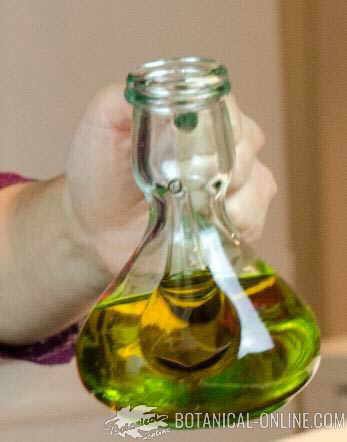
Oilcan
Moringa oil is a stable oil for frying, although the ideal in a healthy diet would be to consume it raw (in salads, dressings,…) or cook with it at moderate temperatures (without frying).
It is not recommended to abuse heated oils in general, because all oils, to a lesser or greater degree, lose properties when subjected to high temperatures.
The stability of moringa oil to heat is much higher than that of soybean, canola or sunflower oil, because its monounsaturated fatty acids are more resistant to the cooking temperature.
However, frying or cooking at high temperatures will cause the oil to degrade and produce peroxides, acrolein, and toxic compounds. Therefore, moringa oil is suitable for cooking and frying, although as we have been saying, it is not recommended to consume it fried.
- Moringa oil is suitable for cooking, but it is not recommended to fry with it or cook with it at high temperatures. High temperatures produce toxic products or changes in taste or color, which diminish its nutritional and organoleptic qualities. It is advisable not to fry foods, and not to consume too many heated oils.
FOOD PROPERTIES OF MORINGA OIL
Moringa oil is rich in monounsaturated fatty acids
Specifically, this oil contains a high proportion of oleic acid. In the varieties of high oleic moringa, its composition reaches 80% of oleic acid (omega 9), being equal to or superior to the one that contains the olive oil.
Oleic acid, from a health point of view, is a type of monounsaturated fatty acid highly recommended because it lowers bad cholesterol and increases good cholesterol, which is a way to prevent atherosclerosis and decrease the risk of cardiovascular diseases like strokes, varicose veins, poor circulation, tired legs, etc. Of course, provided that it is accompanied by a healthy diet.
The health benefits of monounsaturated fatty acids have been widely demonstrated in virgin olive oil, one of the main foods that provides the Mediterranean diet with its myriad benefits.

Benefits of the Mediterranean diet
Moringa oil contains behenic acid
In addition to oleic acid, moringa oil contains a high proportion of behenic acid. That’s why moringa oil is known as Ben’s oil.
Behenic acid is a saturated fatty acid of crystalline type which, by itself, is not suitable because it is not dietetically healthy (it raises cholesterol) but, combined with the high proportion of oleic acid that moringa has, it is very diluted.
Properties of behenic acid in moringa oil
Behenic acid provides this oil with a very suitable temperature stability. This makes this oil can be used by the food industry for the manufacture of margarine, pastries, etc.,
Its content in behenic acid allows that it is not necessary to resort to hydrogenation, as would be necessary in other types of oil of very polyunsaturated nature such as sunflower oil or soybean oil.
Hydrogenation transforms these liquid oils into solid oils by the addition of hydrogen. This process makes these oils suitable products for the food industry, but very dietary unhealthy because they dangerously raise cardiovascular risk. They are commonly known as trans fatty acids, which are believed to be responsible for the increase in cardiovascular disease.
Is moringa oil better than olive oil?
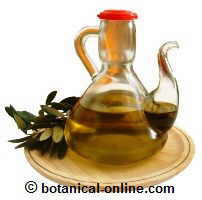
Olive oil
Olive oil has been recognized worldwide by scientists from all countries as the healthiest for humans. Some people might think that moringa oil, being rich in omega 9, could also have these so healthy properties.
Certainly, moringa oil is suitable for nutrition, but you can not equate its benefits to those of olive oil, as olive oil is beneficial because of many other components it has, such as a high content of vitamin E, flavonoids and phytochemicals, containing.
* More information: Which oil is best olive oil or moringa oil?
Quality of oils
In addition to its nutritional composition, what would be a “quantitative” analysis of food, when choosing a healthy oil, we must look at the quality it presents. For example, olive oil can be very healthy, but if it has been refined, very little of its nutritional benefits will remain. The same must be considered in relation to moringa oil.
The best type of moringa oil is the one that has not undergone refinement processes and that has been extracted by cold pressing, which is called virgin oil.
Usually virgin moringa oil is very expensive and is only used for cosmetic or medicinal purposes.

Medicinal properties of moringa oil
Other uses of moringa oil
In addition to being used as edible oil, moringa oil can be used for:
- A very good oil for the production of biodiesel.
- Lubricating oil for machinery.
- Component in the cosmetics industry.
- The squeezed remains of moringa seeds, once the oil is extracted, can be used as fertilizer.
- A potabilizer in the treatment of waste water.
MORINGA OIL COMPOSITION TABLE
In general, we see that the composition of the moringa oil is mainly unsaturated (78.6%), mainly due to its high content of monounsaturated fats (77%), since it has little contribution of omega 3 and omega 6. The percentage of saturated fats this oil has is 21%.
| Composition of moringa oil per 100g | |
|---|---|
| Nutrient | Amount (g) |
| Water | 0 |
| Sugar | 0 |
| Proteins | 0 |
| Fiber | 0 |
| TOTAL Fats, of which: | 100 |
| 20.8 |
| 78.6 |
| 77.1 |
| Polyunsaturated fats (Omega 3 and omega 6) | 1.5 |
In addition, this oil also contains phytosterols and vitamin E antioxidant. For those who want more technical data on the nutritional composition of the moringa oil, we recommend to visit the following page:
![]() More information on moringa.
More information on moringa.


